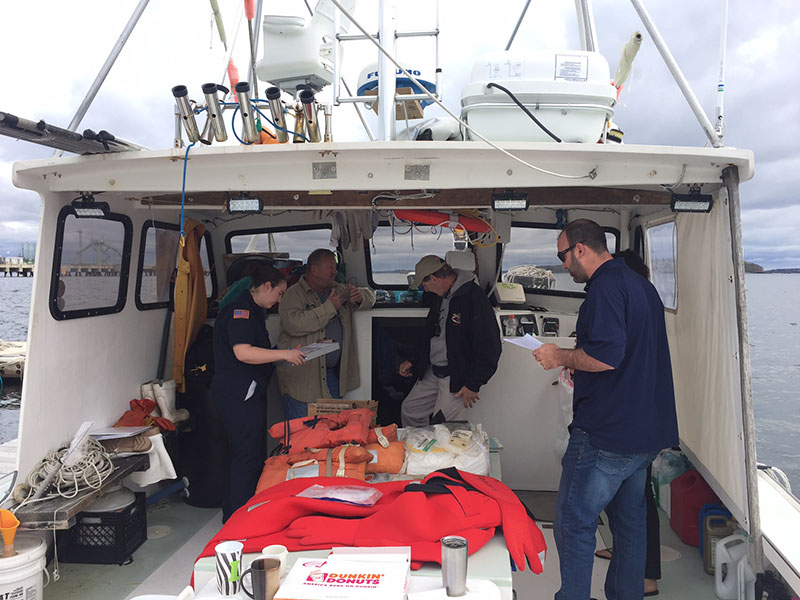On an overcast day in May, I headed down to the last slip at the end of a dock to climb aboard a federally documented 36-footer and take some notes during a Coast Guard Dockside Safety Exam.
The marina property was bustling with traffic that morning. A new building that will soon host a restaurant and bar was getting its first deliveries of food and drink from a series of refrigerated trucks. A fleet of John Deeres whipped around the lots, delivering boats fresh out of shrinkwrap. Once splashed, the boats hustled in and out of the harbor to stretch their legs after a long winter’s nap.
Our host captain had a full crew onboard. My co-worker and I were joined by two representatives from Garmin, as well as the Coast Guard inspector, a trainee inspector and, of course, the captain, who graciously made sure we were well supplied with coffee and donuts in between answering the Coast Guard’s questions about his safety gear.
The checklist for a documented vessel (above the state-registered threshold of 5 net tons) is long, especially for boats transiting or working in cold water. One of the requirements for all boats operating outside of 3 nautical miles is conducting monthly emergency drills with a certified drill conductor. Ideally, this means the captain has taken a Coast Guard-approved drill conductor course. Otherwise, you will need to enlist a crew member or search for a certified witness to sign off your paperwork.
The Alaska Marine Safety Education Association offers drill conductor workshops free to commercial fishermen, with courses running year-round. Other organizations offer them for around $200 or less. Find an updated list of West Coast and Alaska fishing organizations on page 34 of our 2017 Pilothouse Guide.
It never hurts to have more crew trained for efficiency in an emergency. They say baseball is a game of inches. Anyone who has worked the deck of a smaller boat can relate. And when you’re on the water, the line between living or not may be determined by seconds, as well. A small investment of your time could pay dividends in years on your life.







.jpg.small.400x400.jpg)